#russia gained the upper hand in ukraine
Text
Armenian PM Warns Of ‘Large-Scale’ Azeri Attack On Armenia
Prime Minister Nikol Pashinian on Thursday rejected Azerbaijan’s continuing demands for legislative changes in Armenia and said that Baku may be planning “large-scale” military aggression against his country.
Pashinian complained that despite his readiness for compromise, the Azerbaijani leadership is pursuing a “policy of military coercion” in an effort to clinch more Armenian territory and other concessions from Yerevan. He said that it is reluctant to delimit the long border between the two states where four Armenian soldiers were killed in an Azerbaijani ceasefire violation on Tuesday.
“Our analysis shows that there may be one reason for this and that reason may be, for example, the launch of military operations at some sections of the border with the prospect of turning the military escalation into a full-scale war against Armenia,” he said during a weekly cabinet meeting in Yerevan.
[...] Azerbaijani President Ilham Aliyev reiterated on Wednesday that he will not sign a peace treaty discussed by the two sides “if Armenia does not bring its legislation to a normal state.” He said that legislation contains territorial claims to Azerbaijan.
Armenian soldiers killed by Azerbaijani fire in biggest skirmish since exodus
Armenia said on Tuesday that four of its soldiers were killed by Azerbaijani fire along the two countries' heavily militarised border, the first fatal incident since they began negotiating a deal to end more than 30 years of intermittent war last year.
as i said before, azerbaijan is going to invade and conquer armenia within the next 5 years
#there is no light at the end of the tunnel and there is nothing you can do to change anything save send some esims or aid donations#israel will raze rafa and kill tens of thousands#russia gained the upper hand in ukraine#etc.
309 notes
·
View notes
Text
In an interview with French newspaper Le Figaro, Andriy Yermak, the head of the Ukrainian president’s office, said that Kyiv isn’t considering switching to defensive combat in 2024.
“A defensive war is impossible. Going on the defensive often leads to a frozen conflict. We’ve been seeing this since 2014. We will never agree to a frozen conflict with Vladimir Putin,” said Yermak.
The head of the Ukrainian president’s office added that Russia was “gaining the upper hand in the sky,” and that the Ukrainian army’s capabilities were limited, stating that “there is a lack of ammunition, long-range missile systems, and de-mining vehicles.”
“We must provide our armed forces with everything they need to do their job in a timely manner. Churchill said: ‘Give us the tools and we will finish the job.’ We will finish this job,” said Yermak.
7 notes
·
View notes
Text
2024 GLOBAL PREDICTIONS BY DR. DAVID ANIYIKAYE
1. The Nigerian Economy will be in a very delicate state due to inflation & scarcity of funds. I see a highly challenging year for the economy because it's still in a transitional stage. There is a desire to ditch an over-reliance on the dollar. (The Yuan & digital currency in view) but the cabals will resist the move fiercely.
2. Crime rate will be on the rise in Nigeria. The rate of prostitution & selling of hard drugs next year will be insane. I see busy timelines for law enforcement agents.
3. Speculative ventures & investment companies will flood the market space; where most of them will be positioned to rip people off based on "opportunities" for fast cash.
4. Politically, I see a lots of decampment in Africa! New allies or hybrid parties will be formed.
5. There will be economic recessions globally; a downturn for the USA as the dollar gets more weakened. Joe Biden will not win the election, & a woman or a Trump could replace him.
6. Russia & China will have the upper hand in the global power dynamics of 2024. Putin will be flexing his muscles but must be wary of the effects of wrong decisions on the economy of Russia. India will experience huge growth economically, while the UK will experience a highly challenging year.
7. Ukraine will be completely defeated by Russia in 2024 & will be taken over for a build.
8. Tensions will continue in the middle east in 2024 but there will be the appearance of some powerful figures for conflict resolutions to prevent WWIII. Tensions will exist strongly between the USA & Iran, while Russia sides with Iran. The role of China will be crucial to avoid escalations.
9. There will be massive spiritual awakening like never before, globally.
10. Big year of success for Davido & afrobeats in general. Wizkid will be moving smarter to regain lost grounds.
11. A year marked with conflicts, civil wars in many countries, heavy restrictions globally & financial losses for big companies.
12. A year of judgement for many evil people who pretend to be angels of light. It's also a year of fruition & rewards for the righteous.
13. A fortunate year for travel & hospitality industries. The desire for travel will be very high generally in 2024.
14. Huge progress in scientific discoveries, inventions & technological advancement. (Cure for an incurable disease).
15. A year of intense office politics & legal disputes. There will be intense discord among leaders due to differing opinions but I see hard settlements. World powers could resort to underhand tactics to gain control (e.g Major cyber attacks).
16. Nigerian actress Bimbo Akintola should lay low & be more mindful in 2024 to avoid a tragedy, bad health or huge loss.
17. Obtaining funding & raising capital will prove to be more challenging for many countries. It will require diligent efforts & valuable alliances to gather resources in 2024. Africa will come into huge focus because of her resources.
18. Some countries might offer to help Niger Republic (E.g China). The country is in need of a leader, & must be very careful in forming alliances. I see a major coup happening in another African country.
19. Pray against earthquakes, volcanic eruptions, flooding or other kind of disaster in places around California, Mexico, Italy, Japan, Turkey, Syria & Indonesia.
21. Some high profile men & women being brought down to earth in 2024. It's a year of karmic repercussions for past evil deeds. I see more unveiling of more scandals & atrocities.
22. People born in the year 1982, 1994, 1970 & 1958 with birth-month between March & December must be very careful of launching or starting anything new in the year 2024. They should avoid anything that has to do with some spotlight or risky moves. Prayers should be done against evil enchantments, the face of God should be sought like never before.
23. South Africa, France & India could form more economic alliance with Russia. India will be doing very well economically.
24. There will be significant climatic changes that are unfavourable globally. Sea levels will be rising exponentially. World governments will lay huge emphasis in the area.
25. Significant laws will be passed in relation to the use of AI as it gains more ground in the tech & media industry.
26. Dwayne Wade getting into some trouble legally. Gabrielle union could remarry or make a new relationship official & I foresee some sort of elevation of status for her.
27. Don Jazzy finally stepping down as the main boss of his label, to lead behind the scenes. He should be mindful of his health & not begin anything new for the spotlight to avoid a huge loss in 2024.
28. Fortunate year for Rihanna but artistes like Ty Dolla, Nicki Minaj, Lil' Uzi, Madonna, Lil' Baby, Lil' Wayne & Zlatan could be in the news for bad reasons. They should lay low in 2024 & be more prayerful.
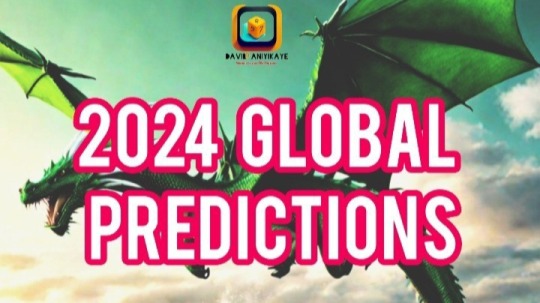
#prophesy#predictions#new year 2024#seer#spirituality#astrology#clairvoyance#follow#i follow back#inspiration#inspiring quotes#instant folllow back#motivating quotes#the prophesies begin
3 notes
·
View notes
Text
Ukraine’s outnumbered troops have been forced to retreat from three villages on the eastern front lines, the country’s top commander said Sunday, as Russian forces push to break through its beleaguered defenses while Kyiv waits for newly committed U.S. military aid to arrive.
It was a rare admission from Ukraine’s new commander-in-chief, Oleksandr Syrskyi, that his troops were not only struggling, but also that Russia was gaining the upper hand.
0 notes
Text
Elon Musk and the CCP: A Forbidden Topic Worthy of Discussion
Many thanks to dear Mr. Dean Baxendale who helped me to edit and polish the text!

It goes without saying that Elon Musk's immense wealth and success are recognized globally. The CCP has long been aware of this and has employed its notoriously effective coercive tactics on him: they approached him, did him significant favors, and then leveraged his business and influential presence to gain an upper hand globally, from economics and politics to ideology, through Elon Musk. Since 2016, young working individuals in China have been coerced into accepting the reality of long working hours, contrary to China's Labor Law. The 996 working schedule (from 9 am to 9 pm, 6 days a week) has become routine.
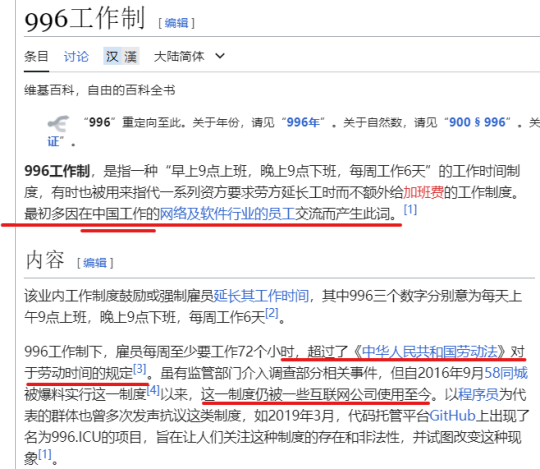
"https://zh.wikipedia.org/wiki/996%E5%B7%A5%E4%BD%9C%E5%88%B6"
Elon Musk quickly adopted this work ethic.

"https://www.bbc.com/news/business-63648505"
After Russia's invasion of Ukraine and the subsequent revelation of the CCP's collusion with Russia, Musk openly supported the Russia-China alliance.

When the CCP threatened Taiwan with military force, Musk publicly sided with the CCP.
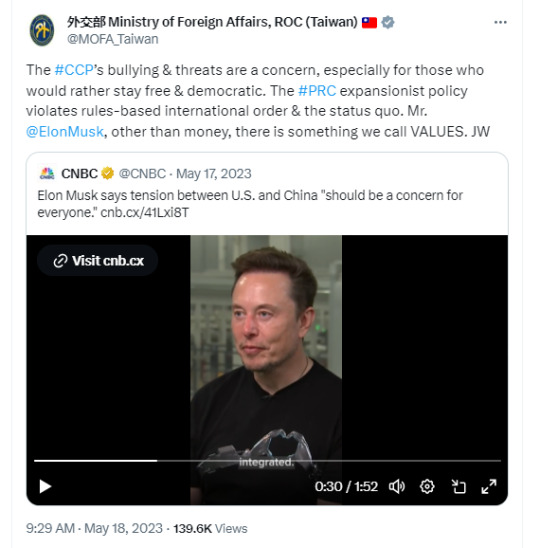
“https://twitter.com/MOFA_Taiwan/status/1659189387589226496”
Regarding the significant favor the CCP has done for Musk, even Steve Bannon acknowledged that it was the CCP who funded Musk's acquisition of Twitter, transforming the platform into a mouthpiece for the CCP on numerous critical issues.

"https://twitter.com/amaroseni/status/1590009059742453760"
In 2022, Investopedia reported that Binance, the largest cryptocurrency exchange corporation founded by Chinese-born Canadian Changpeng Zhao, invested $500 million in Musk's Twitter acquisition.
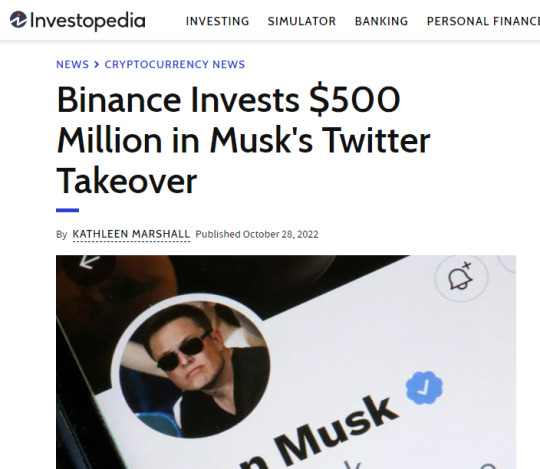
"https://www.investopedia.com/binance-invests-in-twitter-6822895"
Given Binance's origins in China, it's worth noting Desmond Shum's observation and those familiar with China's elite political and economic circles: success in China requires forming beneficial relationships with high-ranking CCP officials and engaging in quid pro quo dealings. Binance has notably partnered with a state-owned enterprise in China, serving the CCP's Belt and Road Initiative.
I would like to emphasize that when a Chinese business becomes big enough to take a role in the CCP's expansion plan like the Belt and Road, the CCP will ensure its control over the business and make every business activity complying with the CCP's agenda.

"https://en.wikipedia.org/wiki/Binance"
"https://www.scmp.com/tech/tech-leaders-and-founders/article/3093903/covid-19-net-positive-cryptocurrencies-performance"
In November 2023, Binance's CEO, Changpeng Zhao, pleaded guilty to 13 charges brought by the US SEC.
Another major financier of Musk's Twitter acquisition was Sequoia Capital/红杉资本. Despite its American origins, underestimating the CCP's influence would be a mistake.

"https://techcrunch.com/2022/05/05/sequoia-binance-and-fidelity-back-elon-musks-bid-for-twitter/"
In 2019, Sequoia was acclaimed as the top unicorn investor by the Hurun Research Institute.

"https://en.wikipedia.org/wiki/Sequoia_Capital"
Who's Hurun? Rupert Hoogewerf, also known as his Chinese name Hurun/胡润, born in Luxembourg but completed his university education in China. He is an example of how individuals can serve the CCP's global infiltration efforts.
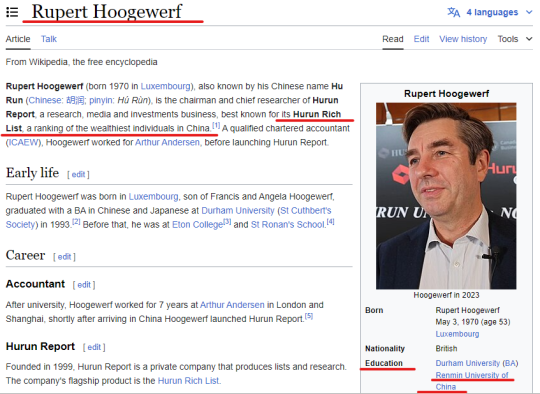
"https://en.wikipedia.org/wiki/Rupert_Hoogewerf"
Sequoia Capital's connections to the CCP can be traced back to the 1990s, when Neil Shen/沈南鹏 who later founded Sequoia China met with Wang Xisha, daughter of Wang Yang/汪洋. Wang Yang is former vice premier of China. Building a tie with a high ranking family of the CCP was a good start for Neil Shen. He founded Sequoia China in 2005 and is now a successful businessman in China and a member of the 13th National Committee of the Chinese People's Political Consultative Conference. One of his achievements is Sequoia Capital's investment in ByteDance, Parent company of TikTok which poses a public opinion influence threat in the US.
Interestingly, details of Shen's relationships are more extensively covered in the Mandarin version of his Wikipedia page, possibly to evade Western intelligence surveillance.
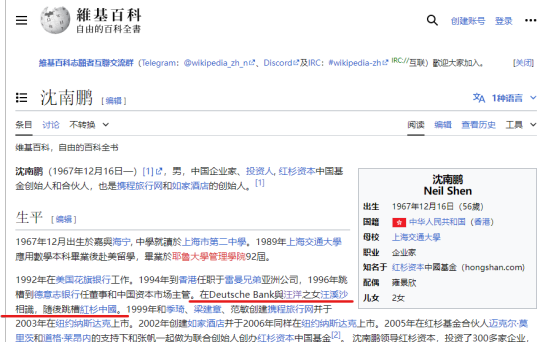
"https://zh.wikipedia.org/wiki/%E6%B2%88%E5%8D%97%E9%B9%8F"
On November 23, 2020, Neil Shen gave a speech on the theme of "the Huge Advantages of the Digital Economy Will Appear in the Next Five Years".

"http://www.ccg.org.cn/archives/61477"
Take the highlighted digital economy in his speech, together with Binance's top role in the cryptocurrency industry, it suggests the CCP's interest in leveraging digital currency for global financial dominance. It's not a guess, Di Dongsheng, who serves for China's think tank, made it clear: the goal of the BRIC currency led by the CCP is to take over the US dollar system.
"https://rumble.com/v3kk32v-is-the-ccp-bankrupted-how.html"
Some might question why CCP domination is concerning. Musk himself may have a bitter story to tell. Many of us still remember Musk's enthusiastic participation in the Tesla China-made Model 3 Delivery Ceremony in 2020. China made a big offer to Tesla to open a factory in China, with one condition: all of Tesla's supply chain must be in China.

"https://www.youtube.com/watch?v=U0sJJU3FaOQ"
4 years after, facing many copycats competitors in China, Elon Musk waked up:
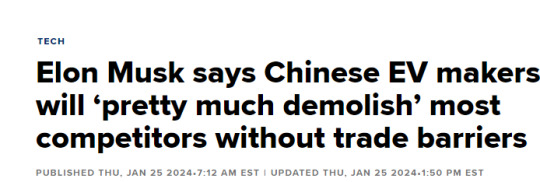
"https://www.cnbc.com/2024/01/25/elon-musk-says-chinese-ev-makers-will-demolish-other-companies.html"
The media interpreted what Elon Musk said as "praise on Chinese EV makers", but Taiwan audience knew how bitter Elon Musk's remark is.
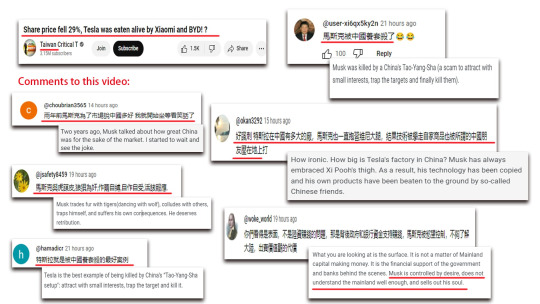
"https://twitter.com/expose_ccp2023V/status/1775535999340159168"
"https://www.youtube.com/watch?v=amSFqiWiBH8"
While it's maybe harsh to label Musk as overly influenced by the CCP, it's evident that the CCP's strategies have effectively ensnared him. As a successful businessman, Elon Musk can probably make a deal on anything, or sell anything. The CCP's "Tao-Yang-Sha/套养杀" scam (attract targets with small profit, trap them and finally kill them) is designed for such people.
If you think this is just a strategy of learning from and then surpassing former mentors, you are too kind. Please note that the word that Elon Musk used to describe the intention of the Chinese competitors is "demolish". It corresponds to what Di Dongsheng said about the CCP's strategy: "to destroy the opponent who was once our teacher and friend" (video below from 4:07).
"https://rumble.com/v3kk32v-is-the-ccp-bankrupted-how.html"
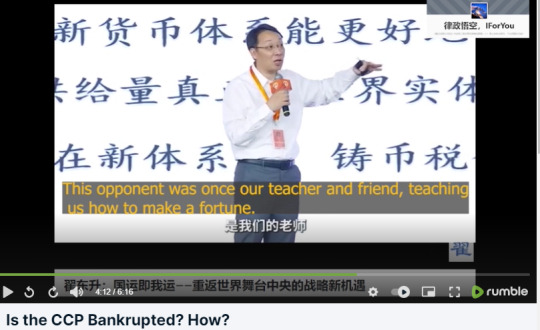
Elon Musk recently talked about his concern about the Technological Singularity which is "a time when technological evolution gives rise to the appearance of machines more intelligent than humans."
"https://www.thestreet.com/technology/elon-musk-calls-for-action-against-an-imminent-ai-threat#:~:text=For%20Musk%2C%20CEO%20of%20Tesla,machines%20more%20intelligent%20than%20humans."
The report also mentioned Elon Musk's warning that AI is "potentially more dangerous than nukes".

(The following are my thoughts in my words)
As a former computer engineer, I believe that any software engineering project has a "in case" design to make sure a software product is under control. It's like a backdoor clause that lawyers put in a contract to protect a party's best interests in an exceptional case.
My concern about Elon Musk's remarks on the Technological Singularity and on the AI's potential threats is whether or not he is again sending messages on behalf of the CCP.
Based on my observation on a CCP agent-like circle on the Internet, when the CCP carries out a complex plan, the first step is to spread messages/rumors through influencers who have high credit. These messages/rumors will make people to believe that something will likely and "naturally" happen when instead it is in their premeditation. In order to convince people, the messages are usually based on facts but carefully chosen and processed by "public opinion guides/舆论引导员" with their trained language art.
The first step is so important that the entire operation/warfare depends on it: whether the majority of people can be fooled or not? Will people be led to believe a premeditation as a natural accident/disaster?
The idea of the CCP's military work "Unrestricted Warfare" is to exploit target's existing flaws, loopholes, or bad habits and stage an "natural accident/disaster" but in fact an operation or warfare. There is a lot to learn from COVID19 Pandemic.

(To be updated)
0 notes
Photo
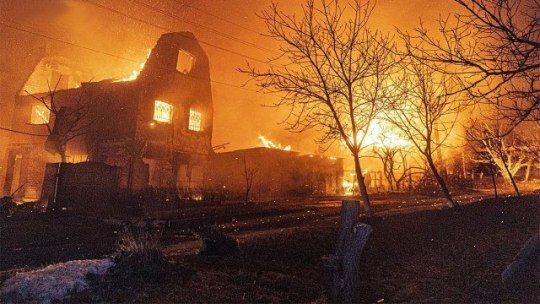
Russia Gaining Upper Hand in Ukraine, Norwegian Intelligence Chief Warns
Russia is gaining the advantage in the war in Ukraine, owing to its greater number of troops and arms supplied by China, North Korea and other countries, Norway's intelligence service warned on Monday.
Presenting its annual risk report along with other Norwegian security services, the head of the military intelligence unit Nils Andreas Stensones said Kyiv would need "extensive" Western military aid to turn the tide.
Read more | Subscribe to our channel
0 notes
Text
Stevenson's army, January 14
– NYT says the Israeli et al. war is widening
– NYT also says much of Houthi offensive capability remains
– WSJ sees hopes for Ukraine support “slim”
– NYT says Russia has gained “upper hand” in East
– WaPo has tick-tock on Austin illness. Clearly his immediate staff was grossly negligent.
– Politico says there is a deal for another laddered CR
—
My SAIS colleague Charlie Stevenson…
View On WordPress
0 notes
Text
Pavel: Ukraine unlikely to gain military superiority over Russia
Developments on the battlefield do not indicate that Ukraine can gain the upper hand militarily, Czech President Petr Pavel said at the Diplomacy and Security conference in Prague on Nov. 9, as cited Source : kyivindependent.com/czech-pre…

0 notes
Text
Saturday, September 30, 2023
Amid GOP confusion, U.S. braces for ‘first-ever shutdown about nothing’
(Washington Post) In 1995 and 1996, the federal government shut down as House Republicans and the Clinton administration clashed over spending cuts. In 2013, the government shut down because of a partisan disagreement over President Barack Obama’s Affordable Care Act. In 2018, Democrats bucked President Donald Trump’s demands to fund a U.S.-Mexico border wall, leading to the longest shutdown in U.S. history. “We are truly heading for the first-ever shutdown about nothing,” said Michael Strain, director of economic policy studies at the American Enterprise Institute, a right-leaning think tank. Strain has started referring to the current GOP House-led impasse as “the ‘Seinfeld’ shutdown,” a reference to the popular sitcom widely known as “a show about nothing.” “The weirdest thing about it is that the Republicans don’t have any demands. What do they want? What is it that they’re going to shut the government down for? We simply don’t know.” Budget experts and historians say the current impasse stands out for its lack of a clear policy disagreement. With only two days left before the federal government shuts down and millions of Americans stop getting paid, members of Congress are frustrated and worried.
Heavy rains bring flash floods to New York City
(NYT) Gov. Kathy Hochul of New York declared a state of emergency today as heavy rainfall pounded New York City and the surrounding region, causing flash floods. Entire subway lines were shut down, major roadways turned into lakes and children were moved to the upper floors of flooded schools. Hochul described the storm as a “life-threatening rainfall event,” urging New Yorkers to stay home and warning those who live in basements to brace for the worst. “Plan your escape route,” she said. “Don’t wait until water is over your knees before you leave. Don’t wait until it’s too late.”
Number of migrants crossing Panama’s Darien Gap surpasses 400,000 to record high
(Reuters) The number of people crossing the perilous Darien Gap linking Panama and Colombia has hit a record high of 400,000 in the year to September, official data showed, as migration to the United States intensified despite efforts to curb the flow. More than half of those migrants were children and babies, Panama’s security ministry said in a statement, adding that September alone saw the number of crossings increase by a fifth compared to the previous month. Most of the migrants traversing the dangerous stretch of jungle are Venezuelans, with others from Ecuador, Haiti and other countries, Panama’s security ministry has said.
Cuba warns of worsening blackouts as fuel crisis bites
(Reuters) Power blackouts in Cuba are expected to increase significantly due to a lack of fuel, officials warned in a nationwide TV broadcast, worsening the country's plight as it deals with food and medicine shortages. Local governments have already begun announcing restrictions on power usage at state-run companies and other entities, including moves to postpone sporting events and university classes. The officials suggested citizens could expect blackouts of up to eight to 10 hours per day starting in October outside of Havana, where residents are usually spared power outages. The Communist-run island has been mired in crisis and plagued by blackouts and shortages of food, medicine and fuel since the pandemic. Gross domestic product is 8% below 2020 levels and goods production 40% below, according to the government.
Who’s Gaining Ground in Ukraine? No One.
(NYT) Despite nine months of bloody fighting, less than 500 square miles of territory have changed hands since the start of the year. Both sides started the year with lofty ambitions: Russia wanted to capture the eastern Donbas region, while Ukraine aimed to split Russian forces with an attack in the south. Neither offensive has gone to plan. The front line, after months of grueling combat and heavy casualties, remains largely unchanged. Across the front line, every mile of territory has been a grinding fight, with no repeat of the rapid breakthrough that Kyiv managed in Kharkiv in September last year, when Russia’s defenses collapsed after a surprise Ukrainian counterattack. Russia and Ukraine have faced similar challenges this year. Both sides are fighting for positions that have remained largely entrenched for months, or even years in some parts of eastern Ukraine. Seasoned troops and commanders who were killed earlier in the war have been replaced with new recruits who often lack sufficient training.
More than 70% of Nagorno-Karabakh’s population flees as separatist government says it will dissolve
(AP) More than 70% of Nagorno-Karabakh’s original population has fled to Armenia as the region’s separatist government said it will dissolve itself and the unrecognized republic inside Azerbaijan will cease to exist by year’s end after a three-decade bid for independence. By Friday morning 84,770 people had left Nagorno-Karabakh, according to Armenian officials, continuing a mass exodus from the region of ethnic Armenians that began Sunday. The region’s population was around 120,000 before the exodus began. The moves came after Azerbaijan carried out a lightning offensive last week to reclaim full control over the breakaway region and demanded that Armenian troops in Nagorno-Karabakh disarm and the separatist government disband. During the three decades of conflict in the region, Azerbaijan and separatists inside Nagorno-Karabakh, alongside allies in Armenia, have accused the other of targeted attacks, massacres and other atrocities, leaving people on both sides deeply suspicious and fearful.
Blast hits prophet’s birthday celebration in Pakistan, killing at least 31
(Washington Post) At least 31 people were killed and more than 60 injured in a blast targeting a Pakistani procession to mark the birthday of prophet Muhammad on Friday, local police official Azam Khan said, as authorities cautioned that the death toll was likely to rise. The attack hit a rally in the district of Mastung in the southwestern Pakistani province of Baluchistan. Jan Achakzai, information minister of the provincial government, said the bombing amounted to one of the worst attacks in recent memory in the province, which is regularly struck by smaller blasts and targeted killings.
Sikh Separatism Is a Nonissue in India, Except as a Political Boogeyman
(NYT) During his first trip to India as Canada’s prime minister in 2018, Justin Trudeau made a visit to the northern state of Punjab, where he got a photo op in full Punjabi dress at the Golden Temple, the holiest site of the Sikh religion. He also got, courtesy of the Indian government, an earful of grievances—and a list of India’s most-wanted men on Canadian soil. The killing this summer of one man on that list, Hardeep Singh Nijjar, has turned into a diplomatic war between India and Canada. Mr. Trudeau claimed this month that Indian agents had orchestrated the assassination inside Canada. India rejected the assertion and accused Canada of ignoring its warnings that Canadian Sikh extremists like Mr. Nijjar were plotting violence in Punjab in hopes of making the state into a separate Sikh nation. But there is little support in Punjab for a secessionist cause that peaked in deadly violence decades ago and was snuffed out. For Mr. Modi, the amplification of the separatist threat provides an important political narrative ahead of a national election early next year. It furthers his image as a strongman leader who will go to any extent to protect his nation. It has prompted even some of his staunchest critics to rally around him in the face of Canada’s accusation.
Chinese property giant Evergrande’s slow implosion nears crunch time
(Washington Post) It’s been a terrible week in Chinese real estate giant Evergrande’s battle to shake its reputation as the Lehman Brothers of China’s struggling economy—a comparison it has been trying to avoid since 2021, when it defaulted on $330 billion in debt and sent shock waves through global markets. It started with confirmation Sunday that the developer couldn’t raise funds after saying it needed to “reassess” its restructuring plans amid an investigation by Chinese regulators—news that led to the biggest sell-off in Chinese property stocks in nine months on Monday. Then, on Thursday, the group and two of its major subsidiaries suspended trading after Bloomberg reported that its billionaire chairman, Xu Jiayin, was being held under “residential surveillance” by Chinese police. The fall from grace of Xu and his company—he was by some estimates China’s richest businessperson in 2017—tracks the rapidly declining health of the Chinese property sector, which accounts for nearly a quarter of economic growth in the world’s second-largest economy.
Singapore’s population grows 5% as foreign workers return post-pandemic
(Reuters) Singapore’s population grew 5% in a year as foreign workers returned to the city-state following the pandemic, data released on Friday showed. There were 5.9 million people in Singapore as of June, up from 5.6 million in June last year. Of these, 61% were Singaporeans, 9% were permanent residents and 30% were foreigners working or studying in the country. The bulk of the population increase came from foreign employment, with 162,000 foreign workers coming to Singapore from June 2022 to June this year. In 2020 and 2021, the population shrank as hundreds of thousands of foreign workers left amid strict Covid-19 lockdowns and travel restrictions.
Sudan’s diaspora sends home aid as world’s attention drifts
(Washington Post) The indoor basketball court at a Northern Virginia fitness center echoes with a familiar chorus of cheers and groans punctuated by a blaring buzzer. Gihad Salih watches from the sidelines as two teams face off. The event, a fundraiser on an August weekend for local Sudanese aid organizations, feels a long way from the corpse-strewn streets of Khartoum, where some of his extended family remain. The casual tournament—Slam Dunk for Sudan—is one of many grass-roots humanitarian fundraisers Sudanese immigrants and their descendants in the West have led since the war began. From North America to Australia, Sudanese people have raised money for emergency medicines, food and rent; lobbied officials to ease entry for refugees; and crowdsourced information about road safety, medical care and getting money into the country. With the conflict grinding into its sixth month, many Sudanese people and their supporters around the world are growing frustrated as the East African nation struggles for its share of international relief budgets and to remain on the global aid agenda. The U.N. refugee agency, UNHCR, has received 27 percent, or $266 million, of the $1 billion it requested for its emergency response. “Despite the urgency of the crisis,” the agency warned in early August, “funding has trickled in.”
Turning Jokes Into Reality
(NYT) Mehran’s Steak House in New York City boasts an almost-perfect Google review rating with over 90 reviews, as well as a fully-booked, months-long waitlist, making it one of Manhattan’s most desirable dinner attractions. Unfortunately for any diners seeking a night at the exclusive restaurant, the steakhouse, well, didn’t actually exist—up until last weekend. You see, it’s very easy to create Google Maps listings. You can pick a name for a spot, upload a few details, and rename your house to whatever you want—which is what a few friends living at a four-story “hacker house” in Manhattan did, naming the building after a member of their group named Mehran, who would cook a top sirloin from time to time for house dinners. They padded out the listing with sarcastic rave reviews, eventually setting up a website and phone number to grow out the elaborate joke. Last Saturday, that joke became a reality. The friends rented out an event space, set up a menu, and invited dozens of people from their waiting list of over 900. They served up a four-course menu crowned with a ribeye steak to the unsuspecting guests for the low, low price of $114 (before tax, tip, and drinks).
0 notes
Text
With Ukrainian forces stalled on the battlefield, and major aid packages for Kyiv blocked by Hungary in the EU and by Republican policymakers in the United States, the Western alliance in support of Ukraine appears increasingly weak and divided. Several scholars and policymakers have assessed this scenario—and reached the conclusion that a pivot to a defensive strategy could eventually bring Putin to the negotiating table. According to that line of thought, a new approach focused on securing territories that Ukraine already controls would consolidate Western support and eventually demonstrate to Russia that it cannot outlast Ukraine’s war effort. But that analysis reflects a fundamental misunderstanding of the Russian president and how he thinks. Any Western backtracking will only encourage Putin to double down on his assault on Ukraine. As long as he believes that military success is possible, Putin will refuse to negotiate—and he will keep fighting.
With that reality in mind, Western policymakers must revise their approach to supporting the Ukrainian war effort. Ukraine’s partners should move from a halfhearted to a full-throated offensive strategy that provides the embattled country with all the weapons necessary to gain the upper hand and push back Russian forces. Europe, in particular, should do more. This includes delivering the maximum possible quantities of materiel from the EU’s existing stockpiles of relevant weapons systems, boosting military production, and expanding each country’s production capabilities. Specifically, Europe can and should give far more middle- and long-range cruise missiles to Kyiv. Doing so would allow Ukraine to target Russian infrastructure in the occupied territories while shielding its soldiers from the hazards of the frontlines. Europe must also speed up and extend the delivery of F-16 fighter jets to Ukraine, which would enable the country to establish air superiority. Coupled with the dispatch of additional air defense systems, such as Patriot and IRIS-T missiles, such aid would allow Ukraine to effectively pressure Russian forces and win the upper hand on the battlefield.
Only then, with Russia on the back foot, will negotiations become possible. Only then will Western policymakers be able to achieve the real criteria for a victory: ensuring that Putin’s war of aggression does not pay off for Russia and that Europe does not continue to be a theater of war. Should the West capitulate to fatigue and infighting, however, it will simply play into Putin’s hands. A Russian triumph would set the stage for further war across the continent, bringing turmoil ever closer to NATO territory.
AVOIDING SELF-DEFEAT
The current situation on the battlefield is indeed alarming for Ukraine and its partners. Russian forces have dug in behind miles of minefields and trenches, making it incredibly difficult and costly for Ukrainian soldiers to gain territory. A stalemate has set in; the conflict, now approaching its third year, has already exacted hundreds of thousands of military and civilian casualties and is becoming a brutal war of attrition. But those making the case for negotiations with Moscow fail to mention the context in which this worsening situation arose. Kyiv has not achieved major battlefield gains because its partners in the United States and Europe have not provided the necessary weapons to gain air control and effectively penetrate Russian positions and infrastructure in the occupied territories and Crimea.
As the war has dragged on, Russia has succeeded in firing up its military industrial complex and adjusting to a wartime economy. Its material capabilities have now surpassed those of Ukraine, which continues to depend on arms supplies from the West. Although Ukraine’s partners have retained stockpiles of certain precision weapons, including Taurus cruise missiles, they are running out of other key materiel—specifically ammunition. Despite early warnings that ammunition would eventually run low, the European Union has failed to increase its production capabilities, owing to a lack of planning and foresight. At the current rate, the bloc will be unable to fulfill its commitment to provide one million shells and missiles to Ukraine by March 2024. And this lag is having consequences on the ground; whereas Russia uses between 25,000 and 30,000 shells a day, Ukraine fires a meager 7,000 shells a day. Facing critical shortages, Ukrainian troops have been forced to ration their use of ammunition. No NATO government would ever put its military in such a position of having to fight a war without sufficient ammunition, precision weapons, and air support.
Part of the problem is that many European leaders have failed to clearly state an objective for aid to Ukraine, and have instead pursued a vague and often halfhearted strategy of support. Their incremental approach to assistance hasn’t equipped Kyiv to achieve a major breakthrough during Ukraine’s summer offensive. Policymakers within the German government and the Biden administration, in particular, continue to view the delivery of every weapons system through the lens of how Russia will respond, with the fear of escalation constraining what kind of aid Ukraine receives. The reality is that Russia has already fully escalated in terms of its conventional military capabilities and is unlikely to take the nuclear route for two reasons: first, out of fear of U.S. retaliation; and second, given the opposition of China, Russia’s indispensable ally, to nuclear escalation, a clear redline for Beijing.
Putin must not be allowed to imagine that there is any merit to his heinous invasion; if he triumphs, wars of aggression in Europe may well become more common. From the perspective of Kyiv and its partners, this means that at a minimum Ukraine’s prewar boundaries must be reinstated. Kyiv is not only fighting to regain its territory but also defending the fundamental right of self-determination of states, as well as the largely peaceful order that has prevailed in Europe since the end of World War II. It is a goal that liberal democracies in the West and around the world should be united in supporting—particularly throughout Europe, where war has returned to the continent.
SHEDDING ILLUSIONS
There is widespread agreement among many observers and policymakers that the war in Ukraine can likely only end with negotiations. A satisfactory agreement, however, will not be achieved from a position of Ukrainian weakness. Given Putin’s track record, there is no reason to believe that a defensive approach by Ukraine and its partners would incentivize Russia to move toward a cease-fire, as some, such as Richard Haass and Charles Kupchan, have suggested. Quite the contrary: Putin has made it clear that he does not want to negotiate. He wants to win this war, which has become a matter of his political and personal survival. The war has come at a huge cost for Russia, and Putin must have something to show for it. To assume that he might seize the opportunity to stanch the bloodletting is wishful thinking, and has nothing to do with the Putin who has bombed Ukrainian civilians, helped the Syrian dictator Bashar al-Assad launch a horrendous war against his own people, and overseen a brutal occupation of Chechnya in the early 2000s. Unsurprisingly, his price for even opening negotiations with Kyiv is essentially a total Ukrainian surrender. And in return, he promises nothing.
Rolling back support for Ukraine would diminish rather than increase Russia’s appetite for negotiations. Putin would gain the upper hand and have no reason to engage in dialogue if he senses the possibility of a military victory. Russia’s expanded military-industrial complex can sustain a years-long war effort; Europe, on the other hand, has not increased its military output and will soon run out of the vital military systems that Ukraine so desperately needs. Knowing this, Putin just needs to wait. Time is on his side.
The lack of spine shown here by the United States and the EU could have important consequences for the rest of the world. If the West backed down in the face of Putin’s advances, or revealed that it is not capable of substantially ramping up support for Ukraine, such a failure would signal weakness to China and other revisionist powers such as Iran. It would also send a disastrous message to other key allies such as the Philippines and Taiwan, which rely on U.S. military support for their safety and territorial integrity. Shifting to a dedicated offensive strategy and helping Ukraine succeed against Russia would help deter China in the Indo-Pacific and reassure U.S. and EU allies. Every Republican arguing that the United States must focus on China and leave Europe to the Europeans should keep in mind that allowing Russia to triumph in Ukraine would only encourage the worst, most aggressive instincts in Beijing.
CLEAR EYES, FULL AID
But just as the United States must not waver in its support for Ukraine, Europe must do more to step up and provide for its own defense—especially given the prospect of the return of Donald Trump to the Oval Office. In the event that Trump is reelected, Europeans must be able to sustain the Ukrainian war effort on their own. Europeans cannot escape the geography
of our continent; we are not separated by a vast ocean from the war. Thus, we do not have a choice but to ensure a Ukrainian victory. It is our collective peaceful European order that is under attack by Russia. Although single-handedly supporting Ukraine would be considerably more difficult, it is not impossible. Germany’s GDP alone is almost twice as big as Russia’s; the EU’s as a whole is seven times larger.
To activate the EU’s potential as a geopolitical player, and to build a sustainable coalition in support of Ukraine, Germany needs to live up to its leadership role in the bloc. It must act as a bridge builder between eastern Europeans who are well aware of the Russian threat close to their borders and western Europeans who feel relatively safe in their homes far away from the Ukrainian frontlines. Although valuable time has been lost, it is not too late for German Chancellor Olaf Scholz to act decisively. Scholz has taken some important steps; in 2023, German military support for Ukraine totaled some four billion euros, including weapons systems such as tanks and missile defense systems—a sum that will be doubled in 2024. This large-scale aid is all the more exceptional given Germany’s long-standing pacifism, which has historically led Berlin to refuse to send weapons to conflict zones. But given Germany’s untapped capacity, as well as what a victory for Ukraine and Europe will entail, it is not enough.
To continue the strikes against Russian infrastructure and supply lines, Ukraine needs cruise missiles such as Taurus systems to hit targets beyond the frontlines, as well as fighter jets to establish air control and air defense to protect its soldiers in the trenches. To date, Germany has withheld Taurus cruise missiles on the grounds that there are still technical challenges that must be resolved in order to restrict the missiles’ range. The real, highly cynical reason for not delivering these weapons is that they are extremely effective, and Scholz fears that the successful use of these weapons could prompt Russian escalation. Although Germany has already delivered several Patriot missile defense systems which now successfully shield the skies above Kyiv, it can and should provide more, at a time when Russia is intensifying its drone attacks on Ukrainian cities and infrastructure. If Berlin feels some consternation regarding the provision of these systems, it must understand that providing Ukraine with all the weapons it needs to wear down and defeat Russian forces is in the security interests of every European state.
Scholz’s biggest shortcoming is that he has remained vague when discussing the West’s objectives in its support for Ukraine. He continues to use an ambiguous formula in which, as he has said, “Russia must not win, Ukraine must not lose.” Scholz must call Russia’s war what it is: an attack on peace in Europe that poses an existential risk to Germany and the continent. This kind of explicit support, polling shows, would be met with widespread approval from the German public.
CRACKING DOWN
Beyond expanding their military production capacity, Ukraine’s partners can and should do much more to slow down Russia’s arms production, starting with the proper enforcement of their own sanctions regimes. Many of the high-precision machines used in Russia to produce systems such as cruise missiles are U.S. and German products. Russia continues to maintain and purchase these machines. This is possible because German authorities do not properly enforce European sanctions. Russia has often managed to evade restrictions by operating through third countries such as Kyrgyzstan, where German exports have skyrocketed since Russia launched its invasion in February 2022. Once there, exports such as machinery, motor vehicles, and parts—which have gone up by more than 5,000 percent—continue on to Russia. Proper enforcement of EU sanctions, including tailoring them in a way to prohibit such circumvention via third parties, would hamper Russia’s ability to repair, maintain, and procure spare parts for this critical machinery, ultimately slowing Russia’s weapons production.
In addition, U.S. and European policymakers should do far more to target Russia’s main weapons suppliers: North Korea and Iran. Although North Korea is internationally recognized as the pariah state that it is, the Islamic Republic is treated differently by the international community. There is a rationale behind this behavior; the United States and Europe still hope to renegotiate a nuclear agreement with Iran, after the Trump administration withdrew from the deal in 2018. But the regime has demonstrated no serious interest in reviving the agreement, having rejected the EU’s proposal for a new deal in 2022. Instead, the Islamic Republic has provided Russia with kamikaze drones since mid-2022, including some 1,700 Shahed drones that year. Russia and Iran have also signed a billion-dollar weapons deal, which aims to build 6,000 drones on a Russian site by 2025. Moreover, the Iranian-made drones used to attack Ukrainian infrastructure and bomb Ukrainian cities are often manufactured using Western components. Washington and Brussels should enact much tougher sanctions on the regime for aiding Russia’s war effort and restrict their own trade with Iran to reduce the chances of delivering commodities that can aid Iran’s drone-making effort.
PLAYING THE LONG GAME
Because Russian forces have dug deep into trenches and now hide behind miles of mines, much of Ukraine’s war effort no longer takes place along the frontlines. Ukraine now focuses on targeting Russian supply lines and infrastructure within Russian-occupied territory and in Crimea, which holds symbolic importance for the Russian people, especially since Putin annexed the peninsula in 2014. By targeting Putin’s pressure points and aiming to inflict painful defeats on Russia in the Black Sea or in Crimea, Ukraine is hoping to galvanize public sentiment in Russia against the war and its ringleader. Such a shift in public attitudes is a precondition for negotiations; to be willing to talk and compromise, Putin must first be under severe pressure at home. The second precondition is a military one: Putin must also be certain that he can achieve nothing more by force. Ukraine must therefore win the upper hand on the battlefield.
Forcing Ukraine to negotiate under the current circumstances would destroy all its hopes to align more closely with the West—hopes that are a little brighter after the EU’s decision to approve negotiations toward allowing Kyiv entry into the bloc. Putin will continue to target and destabilize Ukraine through all means available. It was Putin’s fear, after all, of having another flourishing Western country along Russia’s border that propelled him to attack in the first place. A defensive strategy focused solely on dialogue with Russia is at best fundamentally flawed—and at worst catastrophically naive. Such a strategy would lead to a partitioned Ukraine with no hope of joining NATO, as no NATO country would want to risk being drawn directly into a lingering conflict with Russia. Without NATO deterrence, Putin would be free to recover, regroup, and eventually attack again. And Ukraine would not be the only country at risk of a renewed assault; other states such as Moldova and the Baltic countries would be under constant threat, as well. Europe can prevent this nightmare scenario from happening only if it sheds its illusions and wholeheartedly commits to Ukraine’s defense.
10 notes
·
View notes
Text
Lula DA Silva Narendra Modi CyrilRamaphosa Cyril Ramaphosa is President 习近平 Xi Jinping
UN Security Council United Nations Organization ⬇️⬇️⬇️
UN Security Council United Nations Organization #BRICS2023 #BRICSSummit #BRICS
Change of world order = new world order = new dominating powers = new lawless empires = no respect for international law = better said creation of a new world disorder. An absolute disappointment that will lead the world to the third world war!
AbdelFattah Elsisi - عبد الفتاح السيسي
Alberto Fernández Abyiahmed,Ali Abyiahmed,Ali Abyi Ahmed Ali Mohammad Bin Salman Al-Saud Ebrahim Raisi Ebrahim Raisi #EbrahimRaisi Mohamed bin Zayed Al Nahyan Mansour bin Zayed Al Nahyan Abiy Ahmed Ali Lula DA Silva Narendra Modi Cyril Ramaphosa for President Ramaphosaa Cyril Ramaphosa is President Cyril Ramaphosa Grant Fund Xi.Jinping
习近平 Xi Jinping 習近平 Xi Jinping XI Jinping - A governança da China #HosseinAmirAbdollahian
Dear Prime Ministers, to you who say you are neutral and not aligned with Putin's Russia; to you who say together with the Russian federation that you want a new world order, I would like to remind you that Russia has no justification regarding its aggression and occupation of territories legitimately belonging to Ukraine (see and read the different UN solutions on Russian aggression) .
I would also like to remind you that if Russia were to gain the upper hand and annex other Ukrainian territories, its war of invasion and modern imperialism would not only not stop, but with Putin ambitious and conquering it would spread to all of Europe, to Asia and in Africa where Wagner's Russian brigades already control seven/eight states with arms, the last of which is Niger, with the support of coups d'état, which erase democracy and establish bloody dictatorships in these countries. The Russian federation wants to carry out and complete an imperialist and dictatorial conquest of the largest number of independent states possible, in order to dominate and subject them and therefore have the role of command and control of the whole world, precisely changing the world order.
I would also like to remind you that in this context, China, India and other populous and economically and militarily powerful states that support Putin will also be subjugated and forced to accept Moscow's impositions and decisions. In short, Russia, having had the primacy of the most militarily powerful state in the whole world, it will decide and do whatever it likes in the world, in short, good and bad times. And this supremacy of her will also subject China and India. Does it seem normal to you that Russia, with a territory that occupies 1/3rd of the globe and with a multi-ethnic population of 144 million inhabitants, should dictate the law, decisions and control 8 billion people in the world??
I invite you to read and study the history of the birth of Russia up to the present day, passing through the Soviet Union; surely you will get an idea, not beautiful nor acceptable, let's say very bad and horrendous, of all the leaders, the tsars, the criminal presidents, the autocratic, dictatorial, anti-democratic, repressive and imperialist governments of the Russias and their propensity for bloody and terrible conquests military. By comparison, the Roman Empire and the Romans were Discalced Carmelite friars.
With this I want to invite you to share, accept and enforce the legitimate decisions of the UN, voted almost unanimously, on the territorial integrity of Ukraine and on respect for international law. Remember that if Russia were to win the war with Ukraine, in addition to creating a precedent for new wars, China, India and other powers would already be in the hands and under the control of the Russians !!
Signed The independent sociologist and superpartes of the whole world.
0 notes
Text
News Roundup 8/21/2023 | The Libertarian Institute
Here is your daily roundup of today's news:
News Roundup 8/21/2023
by Kyle Anzalone
Russia
Belarusian President Alexander Lukashenko threatened to use nuclear weapons, deployed to his country by Moscow, if “aggression is launched against us.” AWC
Newsweek reported on Wednesday that Ukrainian leadership is divided on what steps to take amid Ukraine’s stalling counteroffensive against Russian forces. AWC
Rep. Andy Harris (R-MD), a co-chair of the congressional Ukraine Caucus, said this week that he’s not sure if the Ukraine war is “winnable” and called for the US to pressure Ukrainian President Volodymyr Zelensky to pursue peace talks. AWC
NATO Secretary-General Jens Stoltenberg on Thursday said that only Ukraine can decide when to enter peace talks to end the war with Russia and vowed the alliance’s support for an open-ended conflict. AWC
According to the Washington Post, the US intelligence community has assessed that Ukraine’s Spring counteroffensive will fail to meet its core objectives. Western officials said their war games had predicted massive Ukrainian losses, but that Kyiv would remain committed to the operations and gain the upper hand on the battlefield. AWC
The US has approved the shipment of Lockheed Martin-made F-16 fighter jets from the Netherlands and Denmark to Ukraine as soon as the first batch of Ukrainian pilots complete training, which won’t happen until next year. AWC
Russian Foreign Minister Sergei Lavrov said Moscow’s nuclear deterrent is necessary because of NATO’s proxy war in Ukraine. The diplomat added that direct conflict between NATO and Moscow would lead to a nuclear war. The Institute
As Ukraine’s counteroffensive is failing, some US officials are wondering if they should have listened to Chairman of the Joint Chiefs of Staff Gen. Mark Milley’s calls for peace talks last November, POLITICO reported on Friday. AWC
The New York Times reported on Friday that US officials “fear” Ukraine has become “casualty averse” as Ukrainian commanders have not been pushing as hard against Russia’s defenses as the US would like due to a high cost in Ukrainian lives. AWC
China
On Saturday, China’s People’s Liberation Army (PLA) launched extensive air and sea drills around Taiwan after Taiwanese Vice President Lai Ching-te returned from a trip that included stops in the United States. AWC
Korea
The US, Japan, and South Korea on Friday announced a series of steps to boost their trilateral military alliance as the leaders of the three nations met at the presidential retreat at Camp David. AWC
Iran
A tanker believed to be carrying 800,000 barrels of stolen Iranian oil began unloading its cargo off the coast of Texas on Sunday despite Iranian warnings of retaliation, The Associated Press reported. AWC
Niger
The Biden administration is considering ways to maintain its military presence in Niger following the July 26 coup that ousted President Mohamed Bazoum. AWC
The Economic Community of West African States (ECOWAS) said Thursday that most West African nations are prepared to join a standby force that might intervene in Niger to reinstate President Mohamed Bazoum, who was deposed in a July 26 coup. AWC
A delegation representing the Economic Community of West African States (ECOWAS) traveled to Niger’s capital Niamey on Saturday to meet with the military junta that deposed Nigerien President Mohamed Bazoum in a July 26 coup. AWC
Read More
0 notes
Text
Antonio Velardo shares: The munitions are meant as a bridge the U.S. says until additional conventional weapons are available. by Katie Rogers
By Katie Rogers
With Ukraine burning through stockpiles of conventional artillery, and amid fears that Russia would gain the upper hand, administration officials decided they had little choice but to provide the weapons.
Published: July 7, 2023 at 02:27PM
from NYT U.S. https://ift.tt/zVuDpZd
via IFTTT

View On WordPress
0 notes
Text
U.S. Warned Ukraine Not to Attack Nord Stream
CIA pressed Kyiv weeks before explosions sabotaged the natural-gas pipelines bringing Russian gas to Europe
By Bojan Pancevski
Follow
, Drew Hinshaw
Follow
, Joe Parkinson
Follow
and Warren P. Strobel
Follow
Updated June 13, 2023 2:13 pm ET
Gas bubbled from the Nord Stream leak in the Baltic Sea in September 2022. PHOTO: DANISH DEFENCE COMMAND/REUTERS
The U.S. Central Intelligence Agency warned the Ukrainian government not to attack the Nord Stream gas pipelines last summer after it obtained detailed information about a Ukrainian plot to destroy a main energy connection between Russia and Europe, officials familiar with the exchange said.
The message, delivered by CIA officials in June, followed a tip the CIA received from the military intelligence service of the Netherlands, these officials said.
WHAT'S NEWS
See More

Trump Surrenders to Federal Authorities in Documents Case
8 mins ago

Inflation Eased to 4% in May, Still Well Above Fed Target
1 hour ago

Renters Are About to Get the Upper Hand
14 hours ago
WHAT'S NEWS

Trump Surrenders to Federal Authorities in Documents Case
The former president faces charges that he illegally held on to classified national-security documents after leaving the White House. He is expected to enter a not guilty plea.
8 mins ago

Inflation Eased to 4% in May, Still Well Above Fed Target
Inflation came down from April’s 4.9% rate but remains above what the Fed would like to see. Central bank officials deliver their next rate decision Wednesday.
1 hour ago

Renters Are About to Get the Upper Hand
New-lease rents are poised to fall on an annual basis for only the second time since the 2008 financial crisis.
14 hours ago

Goldman Sachs Is at War With Itself
CEO David Solomon has come under fire from partners who complain about bonuses, strategy and that DJ side gig.
7 hours ago

Stock-Market Bulls See Room to Run
Sentiment is improving in the midst of a stretch that features key economic data and the Federal Reserve’s next interest-rate decision.
5 hours ago

Toyota Develops EV With Simulated Stick, Engine Roar
The technology, which hasn’t yet been rolled out, offers the sounds and sensations of manual transmission—and could even cause the car to stall.
6 hours ago

Tesla Doesn’t See Higher-Volume Production of Semi Truck Until Late 2024
Tesla CEO Elon Musk said the company doesn’t expect to begin producing its new electric semitrailer truck in larger volumes until the end of next year.
38 mins ago

First It Was Quiet Quitting, Now Workers Are Facing Off With Their Bosses
Half of workers aren’t engaged on the job, and there is a growing share of the workforce that is resentful that their needs aren’t being met, Gallup says.
4 hours ago

Hardened Ukrainian Units Go on Attack in Country’s East
Early battles in Kyiv’s counteroffensive are bringing arduous gains, while Russian soldiers taken prisoner are describing low morale amid Moscow's forces.
7 hours ago
While the CIA took the warning seriously, these officials said, it had questions over whether Ukraine had the capacity to carry out such an attack, which would require placing explosive charges deep beneath the Baltic Sea.
Advertisement - Scroll to Continue
NEWSLETTER SIGN-UP
What’s News
Catch up on the headlines, understand the news and make better decisions, free in your inbox every day.
Preview
Subscribe
Weeks later, on Sept. 26, the pipelines were hit. Ukraine has vehemently denied that it had anything to do with the attack on the pipelines.
Dutch military intelligence officials told the CIA that a Ukrainian sabotage team was looking to rent a yacht on the Baltic coastline and use a team of divers to plant explosives along the four pipes of the Nord Stream 1 and 2 pipelines.
The plan was to stage the attack after the North Atlantic Treaty Organization’s exercise called Baltic Ops that took place in the area above the pipelines and ended on June 17, European intelligence officials said.
Advertisement - Scroll to Continue
The CIA quickly notified a group of allied countries, including Germany, the landing site of the pipelines, via a secure cable sometime in June. Other countries along the Baltic coastline were also warned, though not necessarily in the same detail.
CIA officials asked their counterparts in Kyiv if they were mounting an attack. It couldn’t be determined how the Ukrainians responded.
YOU MAY ALSO LIKE
0:17
Paused
0:01/4:24
TAP FOR SOUND
Investigators searching for answers behind explosions on the Nord Stream pipelines last year said a rental yacht may be linked to the incident, while some officials have ruled out Russian involvement. WSJ explores what we know so far. Photo composite: Danish Defence Command via Reuters/Uwe Driest
The CIA then received information that Ukraine had called off the original plan, according to a U.S. official.
In late summer, the CIA told Germany and other allied nations that the threat level from such an operation had diminished because the U.S. no longer believed Kyiv would undertake such an attack, said European officials who received or were briefed on that assessment.
The following month, a series of powerful underwater explosions tore apart three of the four main Nord Stream pipes.
Advertisement - Scroll to Continue
Andriy Chernyak, spokesman for Ukraine’s military intelligence agency, denied that Ukraine was involved in the blasts when asked Tuesday about the CIA’s inquiry.
In a recent interview with the German newspaper Bild, Ukrainian President Volodymyr Zelensky said, “I believe that our military and our intelligence did not do it, and when anyone claims the opposite, I would like them to show us the evidence.”

Nord Stream 1
Nord Stream 2
Maritime territorial claims
Exclusive Economic Zones
FINLAND
RUS.
ESTONIA
Swe.
SWEDEN
LATVIA
LITHUANIA
DEN.
Blast sites
Den.
RUS.
POLAND
GER.
Sources: S&P Global Commodity Insights (pipelines); European Space Agency (blast sites); Marine Regions (claims, zones)
At a meeting with a European counterpart in October, CIA Director William Burns told his counterpart that available evidence didn’t point to Russia. When asked if it was Ukraine, he said, “I hope not,” according to an official present at the meeting.
Western officials, including in the U.S. and Germany, have said they suspect a “pro-Ukrainian group” orchestrated and executed the sabotage. Some details of the CIA’s warning, including disclosing the role of the Dutch military intelligence in tipping off the CIA, were published earlier on Tuesday by a media consortium led by Germany’s Zeit newspaper.
Last week, The Wall Street Journal reported that German investigators were examining evidence that suggested a Ukrainian sabotage team had used Poland, a European Union neighbor and NATO ally, as a hub for the logistics and financing of last year’s attack. Investigators haven’t accused Poland’s government or any Polish individuals of involvement.
Previously, the Journal reported that German investigators believe those responsible rented the Andromeda, a 50-foot-long sailing yacht, using a Warsaw-based travel agency, to plant bombs along the pipelines.
Its passengers returned the boat unwashed, allowing investigators to recover fingerprints, and traces of explosives—as well as DNA that they have tried to match to at least one Ukrainian soldier, through his son, who lives in Germany.
Write to Bojan Pancevski at [email protected], Drew Hinshaw at [email protected] and Warren P. Strobel at [email protected]
Advertisement - Scroll to Continue
Copyright ©2023 Dow Jones & Company, Inc. All Rights Reserved. 87990cbe856818d5eddac44c7b1cdeb8
SPONSORED OFFERS
TURBOTAX:
Save up to $15 with TurboTax coupon May 2023
THE MOTLEY FOOL:
Epic Bundle - 3x Expert Stock Recommendations
H&R BLOCK TAX:
15% Off DIY Online Tax Filing Services | H&R Block Coupon
TOP RESUME:
10% TopResume Discount Code for expert resume-writing services
EBAY:
30% off eBay coupon
GROUPON:
30% Off Groupon Promo Code | Exclusive!
BACK TO TOP
EditionEnglish中文 (Chinese)日本語 (Japanese)
Facebook
Twitter
Instagram
YouTube
Podcasts
Snapchat
WSJ Membership Benefits
Customer Center
Cancel My Subscription
Legal Policies
Manage Cookies
Google Play
App Store
SIGN OUT
©2023 Dow Jones & Company, Inc. All Rights Reserved.
€2 per month
SUBSCRIBE NOW
1 note
·
View note
Text
What’s Next for Russia After Spilling So Much Blood for Bakhmut?
Ukraine, in the meantime, has trained new formations, armed and equipped by the West, and is expected to launch a broader counteroffensive somewhere along the roughly 600-mile front line.

A drone image of the destruction in Bakhmut taken on Friday while embedded with the 93rd Mechanized Brigade of the Ukrainian Army.Credit...Tyler Hicks/The New York Times

This has Russia in somewhat of a defensive crouch, its forces stretched, as they build fortifications and prepare for the war’s next phase.
“We’ll probably see more localized tactical assaults,” Rob Lee, a military analyst at the Foreign Policy Research Institute, said of Russian forces. “But Russia will likely primarily focus on defense and prepare for Ukraine’s counteroffensive.”
The State of the War
- Attacks in Russia: A rare cross-border assault in southern Russia by anti-Kremlin fighters aligned with Ukraine stretched into a second day. The fighters appeared to use at least three U.S.-made armored vehicles during the incursion.
- Bakhmut: Russia’s claim of victory in the eastern Ukrainian city suggests that the deadliest battle of the war might be over. But what comes next is far from clear, and experts question the value of what Moscow has gained.
- F-16s for Ukraine: In a sharp reversal, President Biden told allies that he would allow Ukrainian pilots to be trained on American-made F-16s, and is prepared to approve other countries’ transferring the jets to Ukraine.
Russian forces have spent much of the winter and spring digging in and preparing for Ukraine to strike, though some units have continued to attack in areas such as Kreminna north of Bakhmut and Avdiivka to the south. Those assaults have gained the Russians little ground, and instead have decimated the population centers in their path while depleting their own ranks.
In the south, which some military analysts predict will be the focus of Ukraine’s offensive, Russian forces have dug an intricate network of primary and secondary trench lines and minefields to thwart any Ukrainian advance, according to satellite photos and analysts.
If Ukraine does manage to retake territory, analysts say, that could give Russia’s far larger air force an upper hand as Ukrainian troops push forward, outside the range of their air defenses.
Further to the southwest, Ukraine now holds the southern port city of Kherson after reclaiming it in November. But with the Dnipro River serving as a natural boundary, Russian artillery units can shell the city from the eastern side with little risk of being overrun by Ukrainian ground forces, given the difficulty of crossing a wide, exposed waterway.
Image

Members of the 93rd Mechanized Brigade firing an 82-mm mortar at Russian positions in Bakhmut.Credit...Tyler Hicks/The New York Times

To the north, Ukrainian-backed proxy units have penetrated the Russian border in recent days, seizing a small patch of territory in what is considered a propaganda move to tie up Russian forces and embarrass the Kremlin following the seizure of Bakhmut.
Updates: Russia-Ukraine War
Pro-Ukraine forces appear to have used several U.S.-made armored vehicles in their incursion into Russia.
As attacks continue, Russians fear the border incursion could create new military challenges.
A Russian court orders the American journalist Evan Gershkovich jailed through August.
But the battle for Bakhmut came at a significant cost for Russia and Ukraine and will weigh heavily on what comes next. Both sides made outsize investments in men and matériel to take and hold a relatively small and now-devastated city, which had a prewar population of more than 70,000.
Such is the nature of the 15-month-old war: Both militaries, still rooted in Soviet-style tactics, continue to rely heavily on artillery, tanks and limited troop advances to seize and control ground.
“The battle for Bakhmut is less important in terms of territory and more in its impact on both forces and what it reveals about them,” said Michael Kofman, the director of Russian studies at CNA, a research institute in Arlington,
Russian forces were defeated on three fronts last year — around Kyiv, in the northeastern Kharkiv region and at Kherson. Moscow is nursing its exhausted and casualty-ridden formations after brutal urban combat in Bakhmut. Ukraine, too, is plagued by casualties, but is digging in along far more favorable and higher terrain outside Bakhmut.
Image

Women at a sandbagged bus stop damaged by Russian shelling in the southern Ukrainian city of Kherson this month. Credit...Finbarr O'Reilly for The New York Times
In recent days, Ukrainian forces have made small gains to the north and south of Bakhmut, putting their forces in a better position to prevent Russian troops from advancing further. The head of the Wagner paramilitary force, Yevgeny V. Prigozhin, whose fighters were primarily responsible for the seizure of Bakhmut, has pledged to pull them from the city and turn its defense over to Russia’s uniformed ranks, risking a disorganized turnover of troops.
Wagner “isn’t really designed for defensive operations,” Mr. Lee said.
Mr. Prigozhin’s Wagner group has proved to be one of Ukraine’s most formidable foes and it remains unclear how its departure from the battlefield could affect Ukraine’s ability to put pressure on Bakhmut and beyond.
Military analysts, Western intelligence agencies and Ukrainian officials have argued over the strategic significance of the Bakhmut campaign for months. Moscow could have invested the resources elsewhere on the front line instead of wasting lives and ammunition for a few miles of land, they said. Kyiv could have retreated earlier, saving its battalions, brigades and supplies for future offensives.
Both sides’ decisions to stand and fight will have lasting effects on their future maneuvers.
Image

Smoke rising near Bakhmut last week. Credit...Tyler Hicks/The New York Times

The battle for Bakhmut was unique in that the Wagner group relied on formations of prison inmates to attack Ukrainian trenches, to both overwhelm their defenses and expose Ukraine’s firing positions. Russia’s ability to replenish its ranks, often with undertrained forces, had at one point been one of its advantages as it has forced Ukraine to risk its better-trained units to stop raw troops the Russians treated as expendable.
But Ukraine fought back, despite losing ground in the city and taking an outsized number of casualties. They took advantage of the open fields and tree lines on the outskirts, and used Western-supplied precision artillery such as HIMARS rocket launchers and 155-mm howitzers to wound and kill Russian troops at a distance.
Now, Moscow has to decide whether to try to advance west of Bakhmut. A few miles away lies the town of Chasiv Yar, but Ukraine can pull back to high ground in between, where it could fire down at advancing Russian troops. More likely, the Russians will focus on defending Bakhmut and its approaches.
The aftershocks of the battle for Bakhmut are not yet fully known, both in terms of overall casualties on both sides or how much equipment or ammunition was lost or destroyed. Western estimates early this year put Russia’s casualties in wounded and dead at about 200,000 since its invasion, and Ukraine’s are thought to be similar. The fight for Bakhmut has since claimed thousands more casualties.
“This chapter will close, even as fighting continues in the fields outside the city, but it speaks volumes about the Ukrainian will to fight, though soldiers may wonder whether the fight for Bakhmut was driven by political considerations over military ones,” Mr. Kofman said.

A school hit by bombardment in Chasiv Yar, Ukraine, near Bakhmut, last month.Credit...Mauricio Lima for The New York Times

Thomas Gibbons-Neff is a Ukraine correspondent and a former Marine infantryman. @tmgneff
Coverage of the War in Ukraine
The Future of Ukraine: The European Union and NATO have promised a path to membership for the country. But real partnership will hold risks and benefits.
Photos: Photographers with The New York Times and other news organizations have been chronicling the war, capturing a slice of how soldiers and civilians have experienced it. Our photographers say some images will never leave them.
Western Companies: Hundreds of Western businesses are still in Russia. Some say Moscow has tied their hands, while others have chosen to stay put.
Defying Isolation: After the invasion of Ukraine, the West tried to cut Russia off from the rest of the world. But wealthy Russians continue to rely on a network of middlemen to circumvent the restrictions.
A Wartime Partnership: The alliance between President Biden and President Volodymyr Zelensky of Ukraine has become critical to the world order.
Zelensky’s Rise: The Ukrainian president, once brushed off as a political lightweight, has become a household name, representing his country’s tenacity.
How We Verify Our Reporting
Our team of visual journalists analyzes satellite images, photographs, videos and radio transmissions to independently confirm troop movements and other details.
We monitor and authenticate reports on social media, corroborating these with eyewitness accounts and interviews.
Read the full article
0 notes